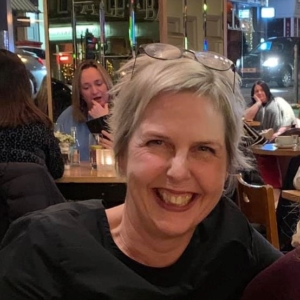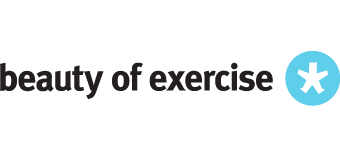 What were the symptoms that led to being diagnosed?
What were the symptoms that led to being diagnosed?
We had a history of breast cancer in our family. It wasn’t real to me until my older sister (aged 45) was diagnosed. Then I took it more seriously and started having mammograms around the age of 43. I was having my second mammogram when I was told I had breast cancer. There was no lump, I was feeling super healthy at the time.
I seemed to be there for ages with different people coming and going. The radiologist right then and there said he thought it was a malignancy and booked a biopsy for the Monday. I went from there to swimming to pick up my 10- and 11-year-old daughters and didn’t tell anyone- waited for my husband to come home and casually mentioned that there might be a problem but was pretty sure there was a mistake. I really didn’t think things would play out the way they did.
Everything seemed to go in slow motion – more scans, more biopsies and eventually the breast surgeon, confirming the diagnosis after a lumpectomy. It seemed to be a never-ending series of bad news. It was worse than we had thought with spread to lymph nodes, lymph vascular infiltration and the fact that the surgery hadn’t cleared the margins of the tumour. It was also high grade.
What was your experience of treatment?
I started chemotherapy on 8th April 2013 on a course of 6 treatments – one every three weeks. This was followed by radiation to my neck and breast. And so began what I thought would be a year out my life before going back to ‘normal’. I had just enrolled in my PhD and we were thinking of buying a house. Chemo was hard. As a Registered Nurse, I thought I would be fine but changing roles is scary and living the experience even worse. I kept going to work, trying very hard to maintain normality, especially for the girls, but each cycle got harder. At one point I called the chemo centre up as I thought they had given me the wrong treatment, I felt so bad. I can’t describe it now but remember just feeling like a bystander to life.
Mid way through treatment, my genetic screening came through showing I had a BRCA2 gene. This is a faulty gene that means there is no ‘brake’ on certain cancers. Breast, ovary and pancreatic cancers are the main ones, so I was advised to have a bilateral mastectomy, oophorectomy (ovaries) and go on a 10 year programme of hormone binders. So I had all the surgery after chemo and radiation and fell in a bit of a heap at the end of the year. I had anticipated getting back to my old self by the end of the year, instead felt so much worse! The steroids didn’t help. Looking back, I wish I’d slowed down a bit and taken the time to get better – cancer is a physical and a mental issue but most of the focus is on the physical.
What have you learnt from your experience?
That I am probably more resilient and fragile than I thought. Any disease that requires intense treatment takes a toll mentally and anyone going through a prolonged diagnosis like this needs psychological support from the outset. I learnt that this wasn’t a year out my life and that I could just go back to being me – it is a long process of adaptation and change. I learnt that it affects your immediate family in significant ways – children can feel insecure, can assume the worst and need reassurance and attention; and often this is difficult when going through treatment.
The burden on partners/husbands is enormous and although my husband laughs at the enormous amount of Spaghetti Bolognese we consumed during chemo, he was blown away by my beautiful circle of friends and their capacity to be there in every way for me and for the family. My sisters and brother and I were close before, but we have a different appreciation of each other knowing cancer is a presence in our lives.
Listening to others is an art. For those on the cancer treadmill, a listening ear is sometimes all that’s needed.
Advice, however well meaning, can often be confusing and hearing stories of others who had cancer not always helpful. Being there for the long haul is important and understanding that the aftereffects can be long and debilitating.
All the practical things – like checking your breasts, following up with your GP if something doesn’t feel right – trusting your intuition.
I’m busy again – too busy! Work, growing family, study, potential renovations etc. Exercise and running keep me sane. The process of cancer and its treatment accelerates ageing- I don’t feel bad about this, I think ageing is a privilege.


